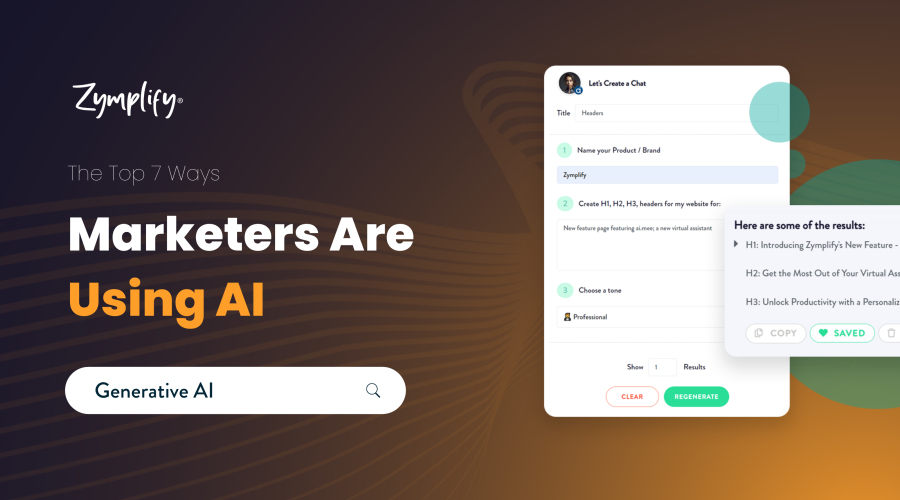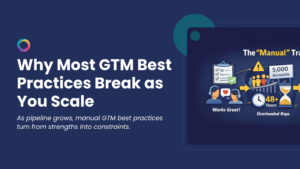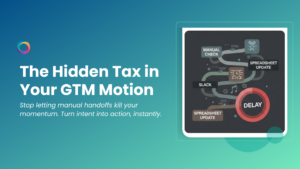Demand Gen, ABM, Sales Outreach and most relevant RevOps go-to-market activities require a robust content development schedule, especially in the B2B space.
When you’re a team of one or just a handful of marketing and sales people trying to churn it out at a high pace and make it relevant – you either need a massive budget for contractors or internal subject matter experts with loads of free time and top notch writing skills.
In this blog post, we’ll explore the top types of AI-generated content in marketing today and how leveraging AI can massively cut down the time spent researching and writing, or slash your outsourcing budget.
1. Transforming Social Media Posts
A striking 35% of marketers have invited AI to join their team, utilising its capabilities primarily in creating engaging social media content. AI, acting as a personal content assistant, has the potential to revolutionise a brand’s social media strategy, significantly reducing the burden of continuous content creation while delivering tangible improvements in audience engagement. Let’s delve into how:
Content Generation: Nurturing Creativity with AI – At the heart of every social media post is the need for unique and relevant content ideas. With the surge of information online, it’s crucial to create posts that stand out. AI can aid in this process by suggesting content ideas, engaging topics, and enticing headlines. It analyses trending topics, keywords, user behaviour, and competitors’ content to suggest themes that resonate with your audience. This not only nurtures creativity but also ensures that your content stays fresh and relevant, significantly enhancing social media engagement.
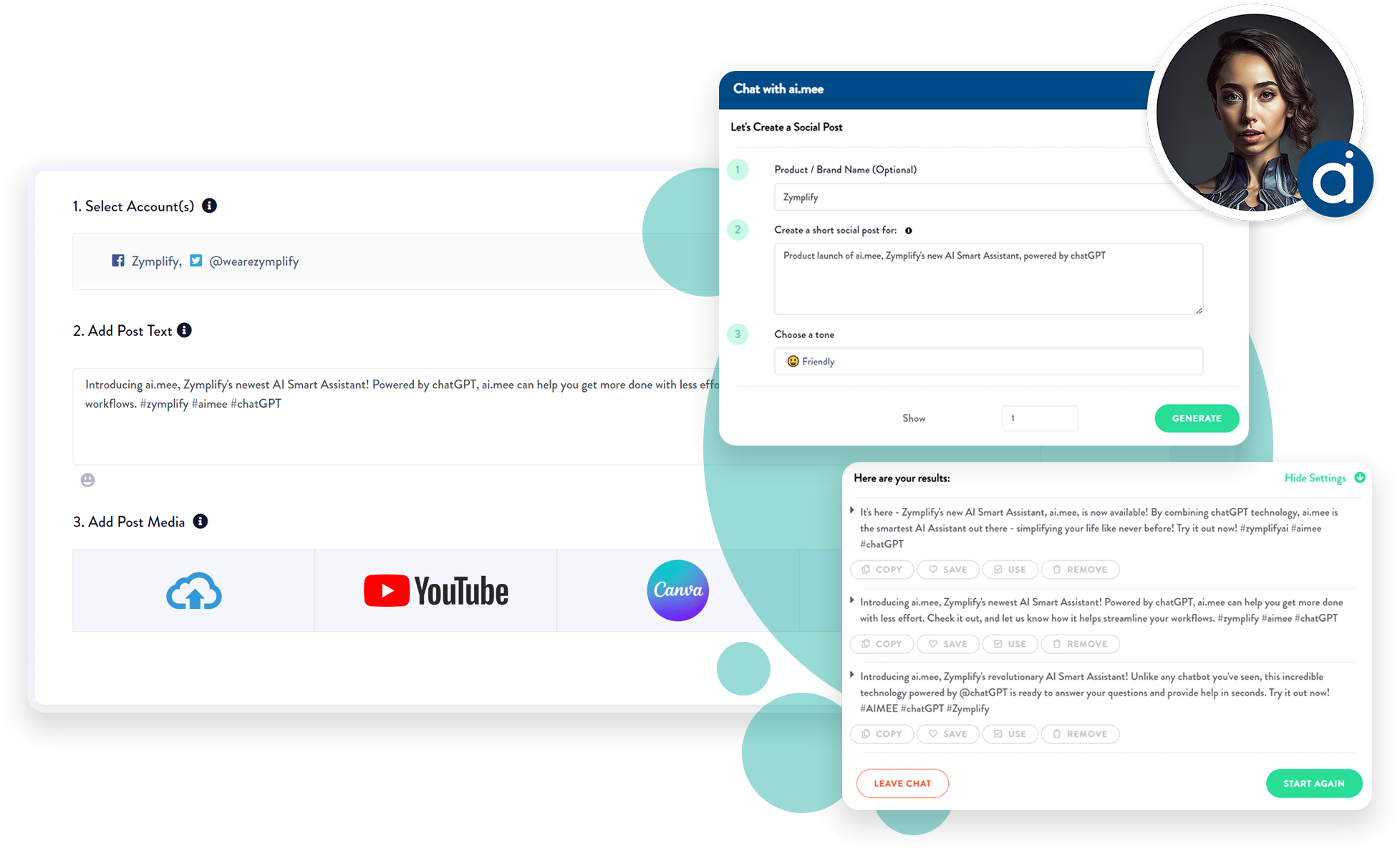
Leveraging Audience Analytics: Personalised, Relevant Content – AI elevates audience understanding to new heights by offering in-depth audience analytics. It can analyse vast amounts of user data to extract actionable insights about your audience’s behaviour, interests, and engagement patterns. Understanding what type of content appeals to which segment of your audience allows you to personalise your social media posts further, resulting in more relevant and engaging content.
2. Revitalising Product Descriptions
For half of the marketers who have harnessed the power of generative AI, the technology has become a pivotal tool in the creation of product descriptions. This can be viewed as one of the most crucial uses of AI in content marketing, attributed to the task’s repetitive nature and the requirement for creative, diverse, and engaging language.
AI tools provide marketers the ability to articulate a product’s features and functionalities effectively. When it comes to describing what a product does and how it can benefit potential consumers, AI can streamline this process while maintaining a high level of detail. For example, AI can automatically generate descriptions that highlight key product specifications and unique selling points, enhancing the readability of the content.
Even more important is the ability of AI to tailor these descriptions to suit the language and understanding level of the target audience. Artificial intelligence systems can analyse the demographic data and user behaviour, recognising the audience’s content consumption pattern. By doing so, product descriptions can be created that are not only accurate and detailed but also in a tone and language style that resonates with the consumers.
3. Revolutionising Emails
Artificial intelligence has proven to be a game-changer in email marketing, with 43% of marketers already leveraging its potential. AI offers strategic assistance, transforming emails from simple communication tools into powerful marketing assets. Let’s explore how AI can enhance email marketing campaigns:
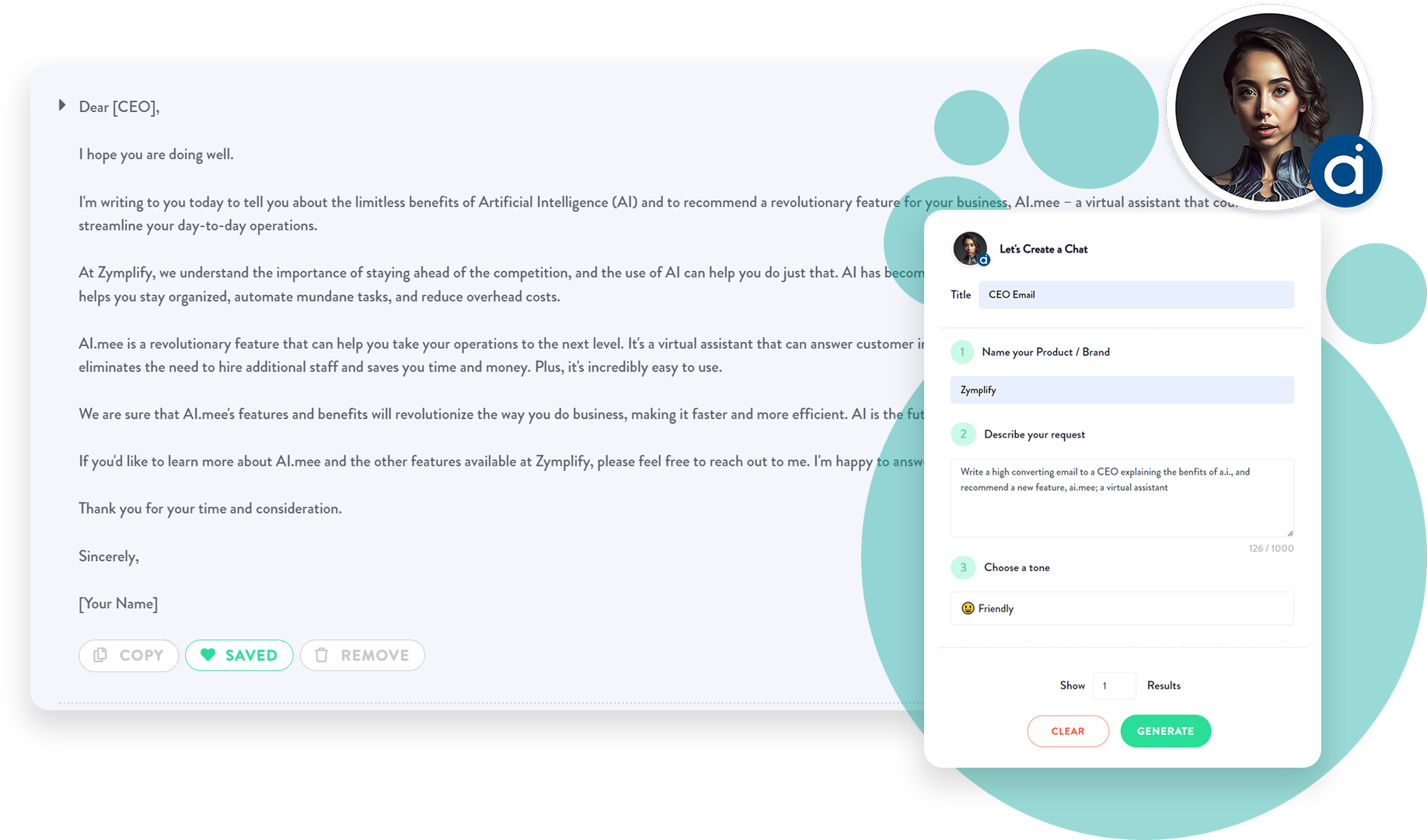
Subject Line Generation: The Art of the First Impression
The success of an email often hinges on its subject line – your audience’s first interaction with your content. Crafting an engaging subject line can be challenging, requiring a nuanced understanding of your audience’s interests and what triggers action. This is where AI comes into play. By analysing previous email campaigns and their performance, AI can generate catchy and effective subject lines that grab attention and invite clicks. Through AI, your subject lines can evolve from mere email summaries to powerful hooks that pique curiosity and encourage engagement.
A/B Testing: Driving Decision-Making with Data
Another incredible advantage of using AI in email marketing is the ease and accuracy of A/B testing. AI can create two versions of the same email, showcasing them to different audience segments to gauge performance. This may involve subtle changes in content, design, subject line, or sending time.
AI doesn’t stop there; it analyses the performance of these versions in real-time, assessing open rates, click-through rates (CTR), and conversions. Based on the data, AI can then determine the best-performing email variant to send to the broader audience, maximising effectiveness.
4. Innovating Image Creation
Among the numerous applications of AI in marketing, image creation has emerged as a vital aspect, with 36% of marketers acknowledging its usefulness. The power of visually appealing content is undeniable, and the integration of AI has taken this a notch higher. How? Let’s delve deeper.
Firstly, AI eliminates the complexities of creating high-quality images. Tools like Generative Adversarial Networks (GANs) can produce original images from scratch, based on the input data provided. This technology can even generate multiple images with varying styles, colours, and dimensions, offering a plethora of options for marketers to choose from.
Another significant advantage of AI in image creation is the capability of enhancing existing images. AI algorithms can automatically improve image resolution, adjust lighting, and optimise colours. Currently, AI technology is so advanced it can even identify and remove unwanted elements from images or add new ones, greatly enhancing their visual appeal.
Furthermore, AI assists in creating personalised visual content, a key driving factor in engagement rates. Employing deep learning, AI tools can analyse audience preferences and behaviour, generating images that resonate with specific demographics or consumer segments. This level of personalisation can significantly increase click-through rates and conversion, making the content more effective.
In the context of SEO, AI-generated images can play integral roles. Search engines like Google favour websites with original, high-quality images, influencing search rankings positively. With AI, not only can original images be created, but they can also be optimised for SEO. AI tools can automatically generate alt-text for images, a critical factor for SEO, based on the image’s content and context.
5. Boosting Blog Posts
Over a third of marketing professionals have started acknowledging the value of AI in reshaping blog post creation. It streamlines various tasks involved in the process, driving efficiency and personalisation which are key to a successful content marketing strategy.
Efficiency – AI leverages automation, dramatically improving the efficiency of content creation. This is particularly evident in the realms of topic generation, research, drafting and SEO optimisation.
AI-powered content tools can generate a list of potential blog post topics based on factors such as trending themes, popular keywords, and audience interests. They remove the time-consuming task of brainstorming, ensuring a steady stream of relevant, engaging topics to choose from.
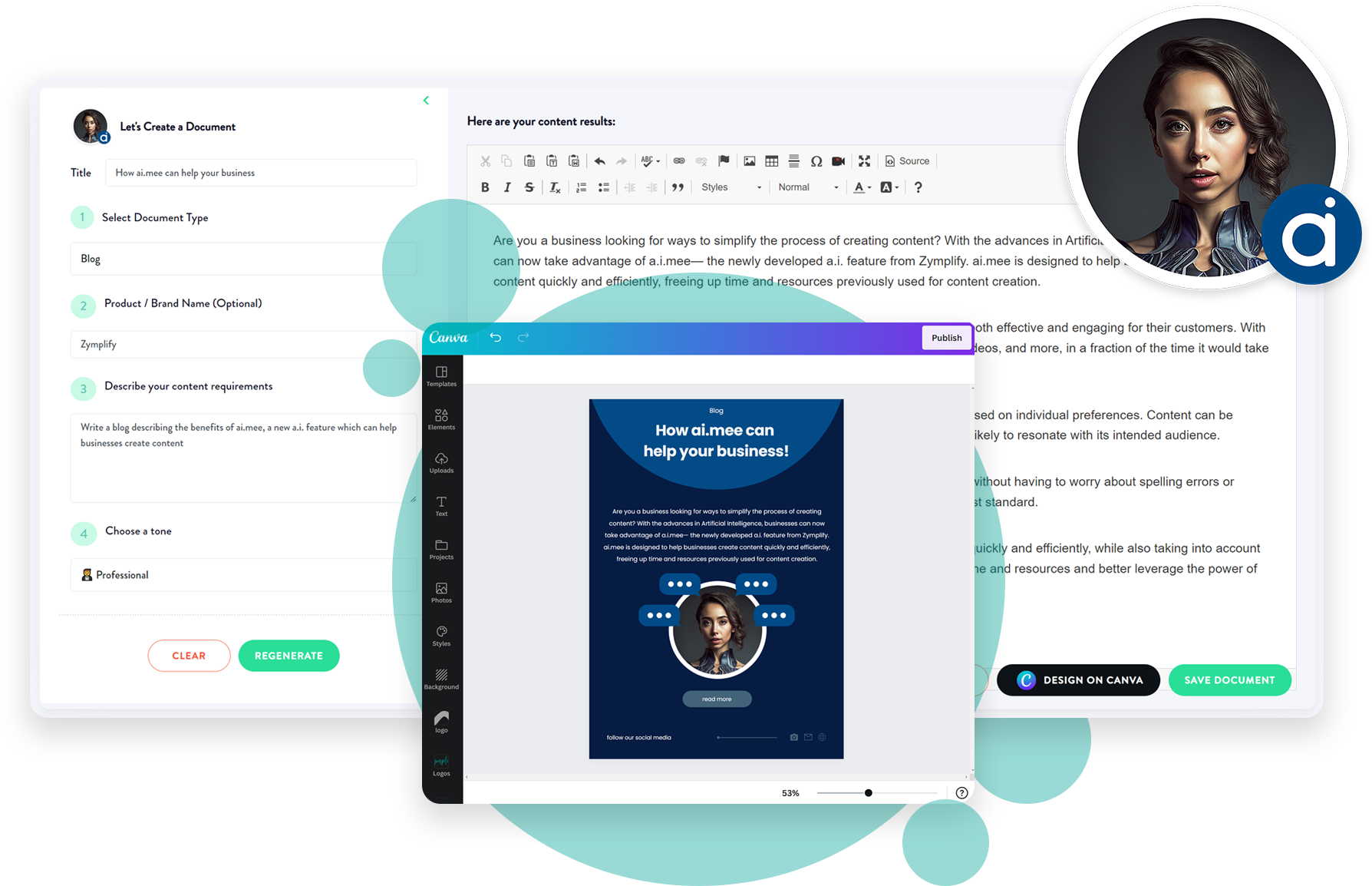
When it comes to research, AI can trawl through thousands of online sources in a fraction of the time it would take a human. The technology can pull together comprehensive data, references, and supporting information to be included in your blog posts, saving significant time and effort.
Even drafting can be accelerated using AI. Once a topic is chosen and research is completed, AI content generators can create a well-structured draft, providing a foundation that writers can build upon.
Moreover, SEO optimisation – a crucial ingredient for online visibility – is no longer a manual, complex task. AI tools can recommend optimal keywords, generate SEO-friendly headlines, and even scrutinise the content to ensure it is optimised for search engines. This allows marketers to focus on creating engaging, relevant content, safe in the knowledge that their blogs will be discovered by the right audience.
6. Optimising Landing Pages
In the realm of digital marketing, landing pages serve as a critical point of interaction between a business and its potential customers. Achieving perfection in landing pages can significantly influence conversion rates, and for nearly a fifth of marketers, AI has been instrumental in accomplishing this task.
A/B Testing: Enhancing Page Layout and Design
One key method where AI has proved advantageous is A/B testing, allowing marketers to identify the most compelling page layout and design. A/B testing involves showcasing two different versions of the landing page layout to two different audience segments, and then assessing which one performs better concerning desired metrics like conversion rates, time spent on the page, or click-through rates.
AI considerably simplifies the A/B testing process. It can generate multiple versions of the landing pages with slight variations in elements such as headline, call to action, images, or form fields. It can then continuously monitor the performances of these iterations, selecting the optimal version faster than humanly possible. The outcome? A landing page that is more likely to engage visitors and spur them into action, leading to higher conversion rates.
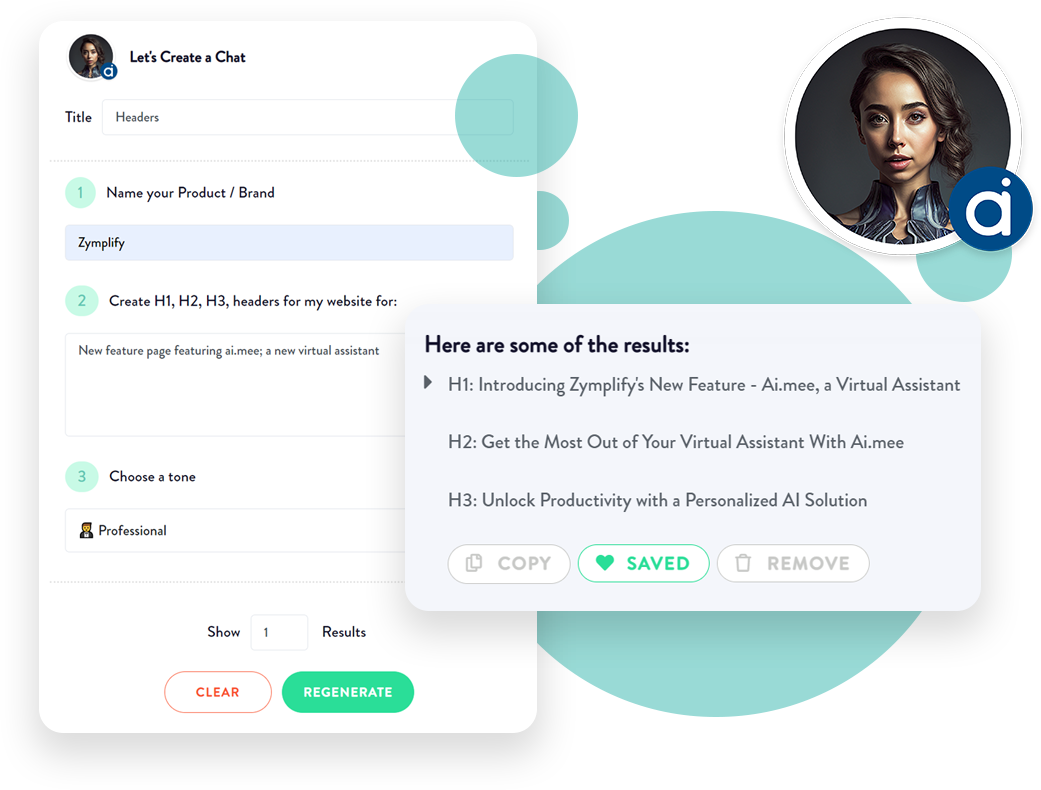
Optimising User Experience: Key to Seamless Website Navigation
Another critical area where AI aids in optimising landing pages involves the user experience. The bounce rate, load time, and other key data are crucial determinants of the user experience, and AI can help fine-tune these elements.
AI tools can monitor and analyse user behaviour in real-time. For instance, it can identify why users are leaving (bouncing) without taking the desired action, whether the load time of the page is causing users to abandon it, or if there are any broken links or errors on the page. This insight enables businesses to rectify these issues promptly, ensuring seamless navigation.
Moreover, AI can also predict user behaviour based on historical data. For instance, it can suggest whether changing the position of a ‘Buy Now’ button or altering the colour scheme will increase conversions. AI-driven heat maps can also provide insight into where users focus on a page, helping marketers place key content or calls-to-action optimally.
7. Enhancing Ebooks
AI’s ability to understand and generate complex language is continually improving, opening new doors for advanced content creation. This evolving capability can offer significant benefits in the development of ebooks, especially when it comes to maintaining a consistent tone and style across long-form content.
Concerns about the authenticity of AI-generated content are being addressed with the ongoing development of AI platforms designed to mimic human-like creativity and original thought. This means that engaging, unique, and thought-provoking content that draws readers in is becoming increasingly possible with AI.
From a legal perspective, while the use of AI in published ebooks should be responsibly managed, it is also true that AI is pushing the boundaries and encouraging new considerations in the realm of content ownership and originality. This certainly represents a fascinating and significant development in the creation of ebooks.
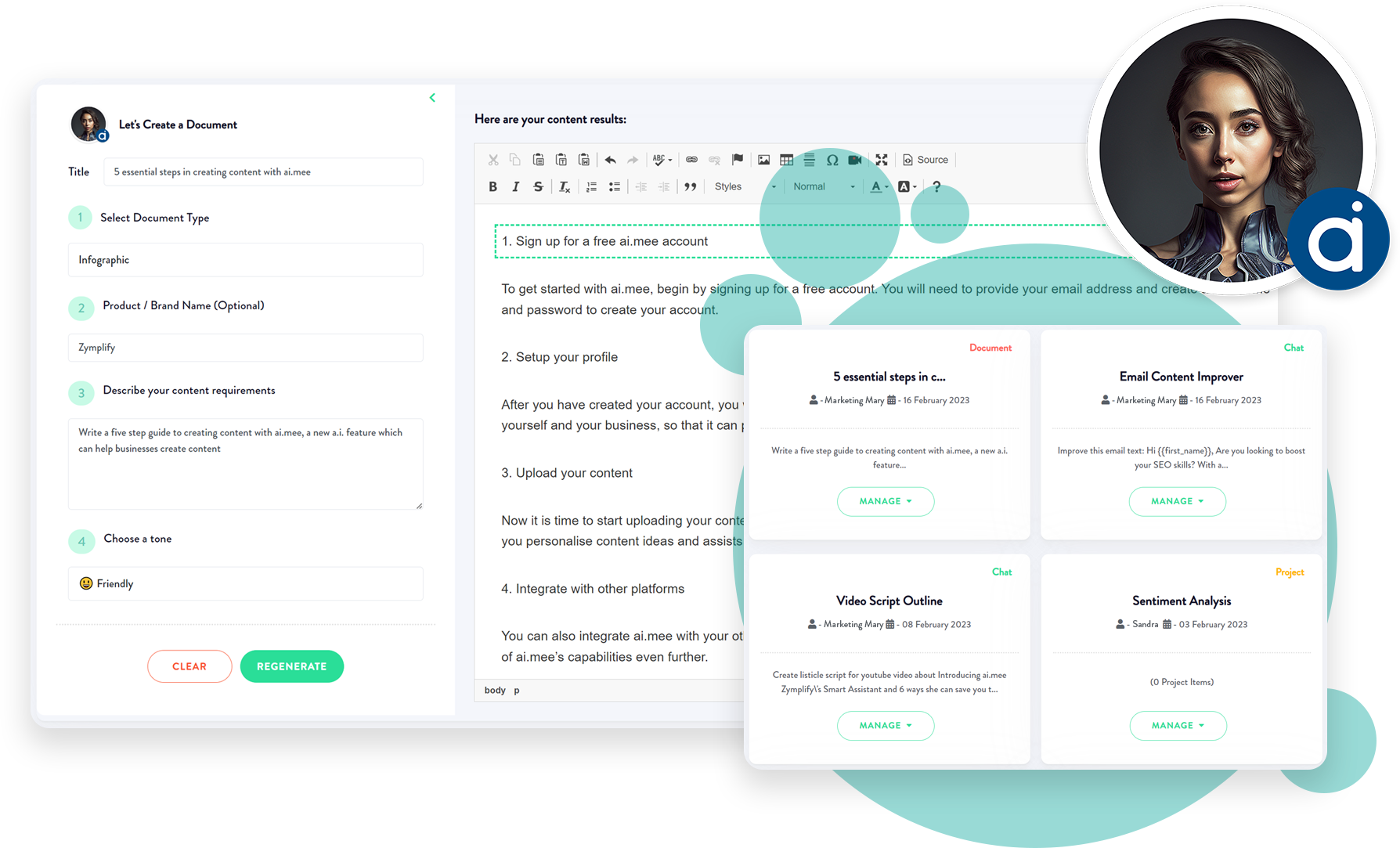
Most notably, AI can significantly simplify and accelerate the process of ebook creation. By automating aspects such as content curation, chapter arrangement, and even bibliography generation, AI allows marketers to focus on refining and perfecting the content.
While exercising a balanced approach, as the technology evolves, AI’s future contributions to the crafting of ebooks and other long-form content will undoubtedly lead to exciting developments, continuing to reshape the landscape of content generation.
Harnessing the Potential of AI for Content Marketing with Zymplify
With Zymplify’s ChatGPT integration you can deliver first draft full-length articles, ads, landing page copy, or whitepapers, etc. in minutes. Give it a proof and edit and you’ve got a full quarter’s worth of personalised content to span the buyer journey in a fraction of the time it would normally take.
Ready to dive into the new age of content marketing? Adapt and employ the intelligent integration of AI into your marketing strategies and position yourself at the forefront of your industry.
But why just read about the potential of AI when you can experience it firsthand?

